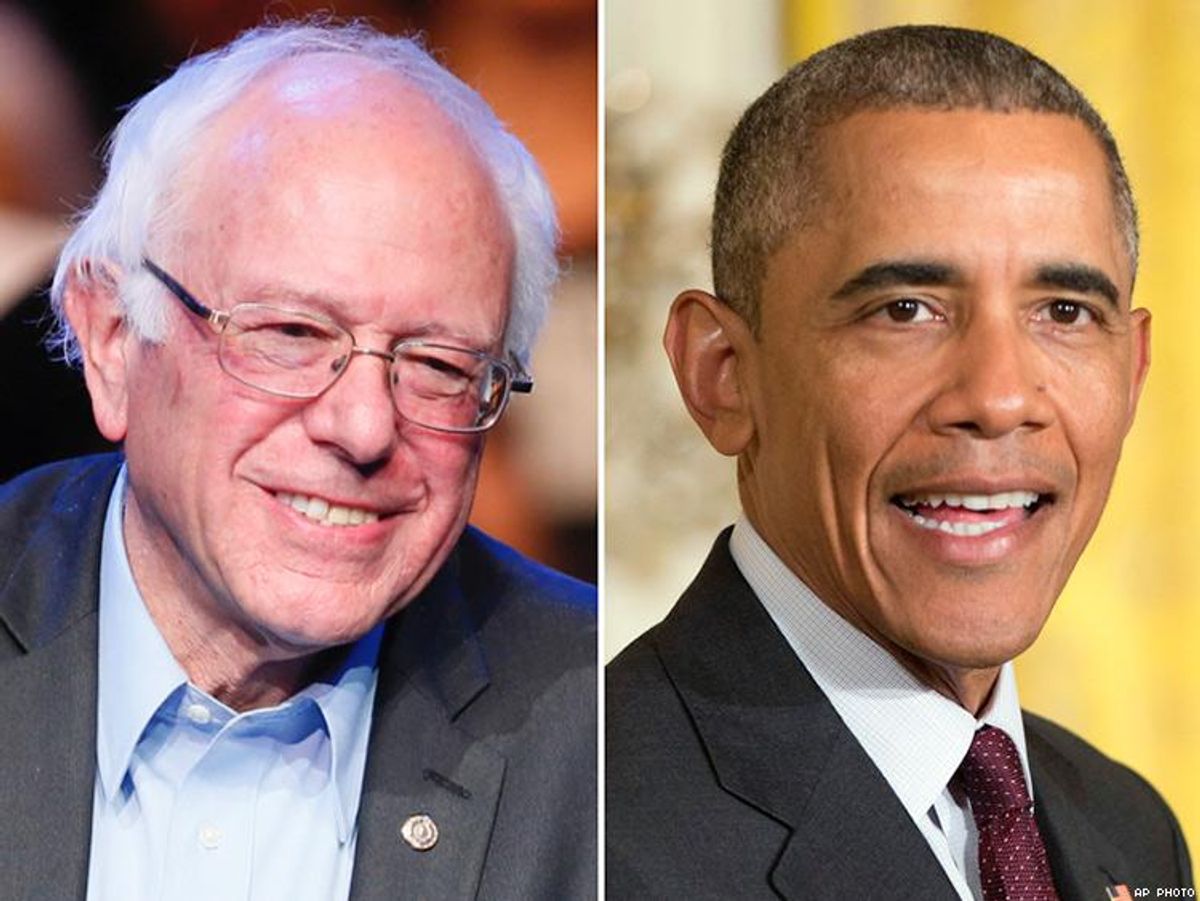As former Secretary of State and Democratic presidential frontrunner Hillary Clinton tweeted out her support for Houston's embattled non-discrimination ordinance in the final run-up to Tuesday's election, other Democratic heavy-hitters added their support, as well.
When asked about the President's position on the Houston Equal Rights Ordinance, which would offer nondiscrimination protections in employment, housing, and education to all residents of the nation's fourth-largest city, a White House spokesperson said the president's record is clear.
"While the administration generally does not take a formal position on specific proposals or initiatives, the president and vice president have been strong supporters of state and local efforts to protect Americans from being discriminated against based on who they are and who they love," White House spokesman Jeff Tiller told the Washington Blade. "We're confident that the citizens of Houston will vote in favor of fairness and equality."
Democratic presidential hopeful and independent Vermont Sen. Bernie Sanders also tweeted his support for ending discrimination Thursday, prompting The Blade to seek confirmation from a campaign staffer that Sanders does, indeed, support HERO.
On Friday, HERO supporters also got a boost from several major Fortune 500 companies, including tech giant Apple, whose CEO, Tim Cook, came out as gay last year. Houston Unites, the coalition urging residents to vote "Yes" on Proposition 1 in Tuesday's election, announced HERO's newest backers today. The business community now backing HERO includes nearly 60 companies total, including General Electric, Hewlett Packard, BASF, and EMC.
But despite the increasingly prominent and vocal supporters, The Texas Observer reports that early-voting numbers should concern equality advocates. None of the three political scientists at Houston-based universities interviewed for the article were confident that HERO supporters will eke out a victory, pointing to unusually high early-voting returns and turnout among Republican and African-American voters.
Most of those experts pointed to the early success of the debunked "transgender bathroom myth" consistently advanced by the anti-HERO collective. Falsely claiming that HERO would allow "men in women's bathrooms," this effort not only misrepresents the intent and scope of HERO, but also relies on provably false claims that transgender people are "pretending" to be their authentic gender in order to harass other women and children.
To be clear, HERO would provide Houstonians with protections against discrimination on the basis of sexual orientation and gender identity in housing, employment, and public accommodation (including restrooms). It also adheres to current federal laws that prohibit discrimination because of sex, race, color, ethnicity, national origin, age, religion, disability, and family, marital, or military status, in addition to prohibiting discrimination against individuals based on pregnancy or genetic information.
The laser-like focus and dedication to painting HERO as a "bathroom bill" (a phrase defined asderogatory by LGBT advocacy group GLAAD) is a tried-and-true red herring that seeks to derail conversations about equal accommodation into transphobic fear-mongering. Despite the allegations in the ad and others like it, there has never been a verified instance of a transgender woman -- or, for that matter, a man -- using such an ordinance as cover to enter gender-segregated spaces and harass women. Likewise, a June study by progressive watchdog group Media Matters discovered that trans-inclusive restroom policies in the 17 largest school districts in the U.S. have resulted in zero incidents of boys "pretending" to be girls, reports of harassment, or any other "negative consequence" of the inclusive policies.
Of course, were someone to enter a restroom indenting to assault women, such an aggressor could still be prosecuted and punished under local, state, and federal laws prohibiting such harassment. No citywide ordinance could change that -- and HERO isn't looking to do so.
In reality, transgender people are much more likely than their cisgender (nontrans) counterparts to be the victims of harassment and violence in restrooms and other gender-segregated spaces. A 2013 study from the Williams Institute at the University of California, Los Angeles, School of Law found that a staggering 70 percent of transgender respondents in the Washington, D.C., area had experienced some sort of negative reaction to them using the restroom.
The Houston ordinance, which mimics policies in more than 200 other municipalities nationwide, overwhelmingly passed its initial vote in the City Council in May 2014. By June, outraged citizens led by religious and political conservatives had launched a ballot initiative that sought to overturn the ordinance. They claimed to have the 17, 269 valid signatures necessary to put the ordinance on the ballot, but city officials said many signatures were forged. In a subsequent lawsuit challenging the city's findings, a judge determined that the petitioners failed to obtain enough valid signatures to force a referendum. During the course of that lawsuit, Mayor Annise Parker and other city officials issued -- then withdrew -- subpoenas to several local antigay pastors who had campaigned against HERO from the pulpit.
Late last month, the Texas Supreme Court ruled that Houston officials either had to repeal HERO or put it to a public vote. That ruling came in a lawsuit filed by several conservative activists, including former Harris County Republican Party Chief Jared Woodfill -- the same man behind the transphobic radio ad, according to LGBT blog The New Civil Rights Movement.















































































